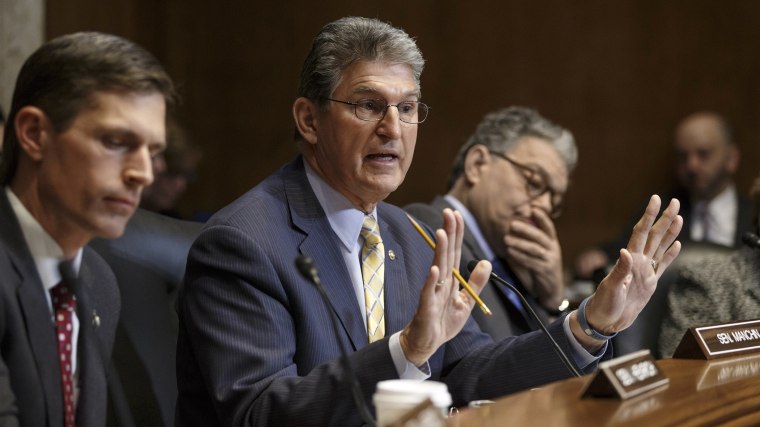The Capitol Hill debate over the international nuclear agreement with Iran is effectively proceeding on two tracks. The first is substantive: is the agreement worthwhile? Is it a sound approach to foreign policy and national security? This fight is already off to a rough start, with Republican critics
struggling to bring their A game.
The second, however, is based less on policy and more on arithmetic: will opponents of the diplomatic agreement have the votes to kill the deal?
We already have a basic understanding of how the process will proceed. After Congress' August recess, both the House and Senate will take up a measure to derail the international agreement. It's very likely to pass both chambers, at which point, President Obama will veto.
The question then boils down to this: will the right be able to muster bipartisan, two-thirds majorities in both the House and the Senate?
For now, it seems unlikely. Consider
this exchange on CBS's "Face the Nation" yesterday between host John Dickerson and Sen. Joe Manchin (D-W.Va.).
DICKERSON: You have done a lot of firsthand reporting here. Are you going to support it? MANCHIN: I'm looking at -- I'm leaning very strongly towards that because of the options that I have. The only other option is go to war.
Manchin is arguably the most conservative Democrat in Congress, so his perspective is often sought out as a guide of intra-party disarray. In other words, if the West Virginian is "very strongly" leaning in support of the diplomatic agreement, it's a reasonably reliable hint that the total of Democratic defections in the Senate will be modest.
Indeed, Senate Minority Whip Dick Durbin (D-Ill.), whose job it is to count Senate Dems' votes, told the
Washington Post's Greg Sargent late last week that "
only a few" of his Democratic colleagues have expressed serious resistance or opposition to the deal. The senator added, "The response has been positive across the board."
The deal faces a make-or-break vote this September, when Republicans will move forward with legislation to scuttle the agreement. The GOP is trying to build a veto-proof majority, and both sides, along with Obama himself, are lobbying hard for every vote, with [Texas' Lloyd Doggett], [North Carolina's David Price] and about a half-dozen other Democrats quarterbacking the effort to keep Obama's legacy-defining diplomatic achievement afloat in the House. Since that early meeting, their campaign has developed into a more organized and formal whip operation. Instead of meeting in Price or Doggett's offices or on the House floor, the campaign to sway House Democrats to support the controversial Iran nuclear deal is now housed in the Capitol offices of Minority Leader Nancy Pelosi. Price and Doggett have marshaled a broad array of support in the caucus, from moderates like themselves to liberals in the whip team -- all the way up to Pelosi herself, who announced her strong support for the accord shortly after it was announced on July 14.
To guarantee that the nuclear agreement moves forward, assuming that zero House Republicans support the deal, House Democrats will need a minimum of 145 votes. The current head-count puts that total at 152 votes.
In other words, the right will need two-thirds majorities in both chambers, and right now, it seems unlikely they'll get either.
The fear, however, is that the August recess will change the entire dynamic. Opponents of the deal are prepared to invest tens of millions of dollars in attack ads in the coming weeks, and they're planning to bombard town-hall meetings to demand the death of the diplomatic agreement.
For now, all available evidence suggests the deal's critics don't have the votes. Whether that's still the case in six weeks remains an open question.
